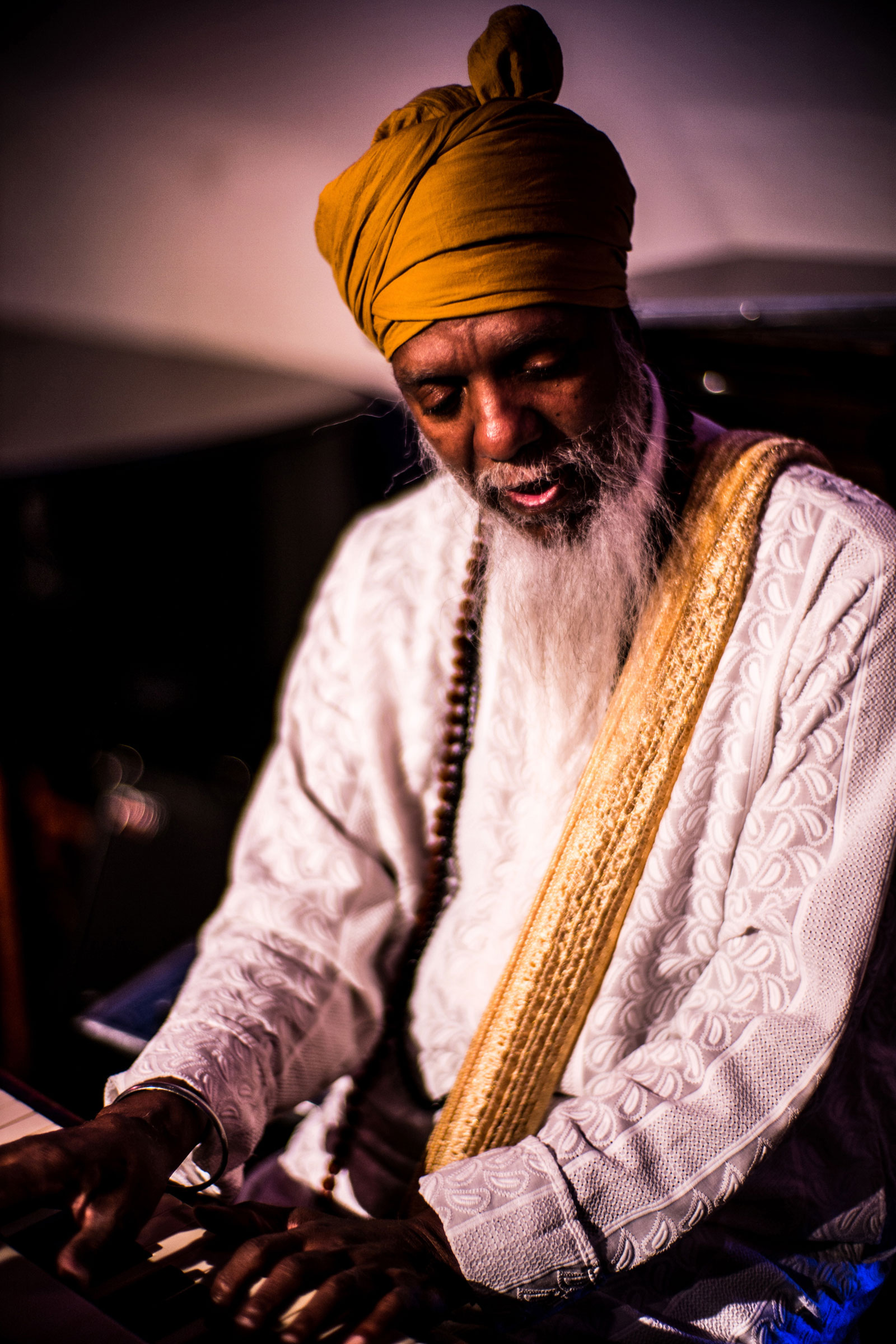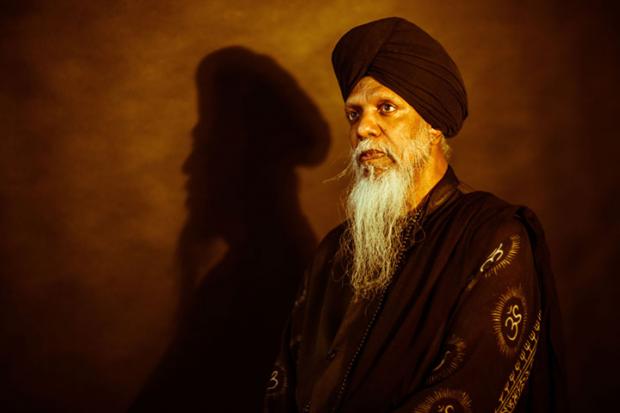Spotlight: Dr. Lonnie Smith
Dr. Lonnie Smith, a prominent Buffalo-born musician, is regarded as one of the greatest jazz organists alive. Over the past five decades, he has put out dozens of well-received solo albums and played with prominent artists both in and outside the jazz, including Santana, Etta James, Marvin Gaye, and Lou Donaldson.
To hear Smith himself tell it, his success was less a product of practice and persistence than it was of good fortune and soul-searching.
Born into a musical family, Smith was introduced by his mother to gospel, classical, and jazz music at an early age. By his teen years, he was playing trumpet and singing in a group formed with his brothers called the Supremes—years before the Motown Records singing trio of the same name was formed.
Though he enjoyed hearing the organ played at church, he never seriously considered taking up the instrument during his youth. He was introduced to it by Art Kubera—an “angel,” Smith calls him—who owned a local music store that Smith frequented as a teen.
“I sat in the store every day at closing time,” Smith said. “He said, ‘Why are you coming in the store every day at closing time?’ I said, ‘Sir, if I had an instrument I could learn how to play and make a living.’”
One day, Kubera showed Smith an organ the music store. Smith recalled the moment he laid eyes on the instrument as a kind of epiphany, like a light shining down from the heavens.
The organist at his family’s church offered him some minimal training: “He showed me how to turn the knobs,” Smith said. He said it was his passion and drive for the instrument that allowed him to excel as a self-taught player.
“Even though I didn’t know how, I was able to play right from the beginning,” Smith said. “I learned how to work the stops and that was it. It’s a passion for me, so everything else came naturally.”
Not long after, Smith was enlisted to join a group led by musician Sammy Bryant. With Bryant, Smith toured across the country and played with prominent Motown Records artists. He quickly attracted the attention of jazz greats, including Jack McDuff, George Benson, and Grant Green, the latter of whom was so skilled that Smith intentionally skipped recording sessions he’d been invited to, out of fear that he would not live up to the great jazz guitarist’s standards.
“[Green] asked me to play with him very day I saw him,” Smith said.
Smith’s connections with Benson, Green, and other artists at Blue Note Records led to a job offer. In 1966, he left the Sammy Bryant group and moved to New York City, where he joined the newly formed George Benson Quartet.
He put out two albums with the group—1966’s It’s Uptown and 1967’s The George Benson Cookbook—both released under Columbia Records. That same year, Smith put out his own debut record, Finger Lickin’ Good Soul Organ, also under Columbia.
Through the remainder of the 1960s, Smith was signed to Blue Note himself and released solo albums such as Think! and Turning Point. He also played as a session musician for other artists, including Donaldson and Red Holloway.
Perhaps most notably, Smith played on Donaldson’s 1967 album Alligator Bogaloo. He recalled that the title was a completely improvised track, recorded as filler, to push the album past the 30-minute mark. It ended up becoming Donaldson’s biggest hit at the time.
“That was an extra track that we threw in it,” Smith said. “It was just the right tune, just the right feel. We didn’t know it would be a big hit at all.”
Barely two years later, Smith had his own totally unexpected hit. He was performing at Club Harlem in Atlantic City, where he played a joke song called “Move Your Hand.” The show was recorded for a live album released in August 1969, and the loose, funky jam became a big hit. There was only one problem: Smith didn’t much care for it, saying he never would have released it as a studio recording.
But a hit is a hit, and when an artist has one they are expected to deliver it, night after night after night.
“Now I had to play this song all the time,” Smith said. “I didn’t want to do it. I tried to get away from that song. It took me a long time.”
By the early 1970s, Smith decided to get away from “Move Your Hand” by retreating from music altogether. He laid low for more than a year in Detroit and later in Indianapolis, and changed his image, ditching his stage-name, “the Buffalonian,” and his trademark cowboy hat.
When he returned to music in the mid-1970s, Smith took up pretty much where he had left off—playing for Blue Note artists (Benson, Donaldson), putting out solo releases (starting with 1975’s Afro-Desia) and playing with Motown legends, including Marvin Gaye at the 1980 Montreux Jazz Festival.

Photo by Mathieu Bitton
His career has been going strong ever since. Earlier this year, he released Evolution, his first solo record in three years, and he’s been touring the country to support it.
Smith attributes his longevity partially to a new generation of musicians, namely hip hop producers and jazz rap artists, who have extensively sampled Blue Note Records discography. Hip hop producers from Questlove to Madlib have put out entire collections of samples gleaned exclusively from Blue Note artists.
Most prominently, Smith’s 1970 recording, “Spinning Wheel,” was sampled in A Tribe Called Quest’s classic hit “Can I Kick It?”
“I thought it was really great. They just made it work with what they were doing,” Smith said.
In recent years, Smith has also seen his list of accolades grow — he was named the “Organ Keyboardist of the Year” by the Jazz Journalist Association at least nine times since 2003, and next year he will be awarded his highest honor yet, a National Endowment for the Arts for Jazz Masters.
“When I see things like that, it’s nice, but I don’t let it blow my head up,” Smith said.
As for the future, Smith, now 74 and residing in Fort Lauderdale, plans to continue doing what he’s always done—playing music that comes from wherever his head is at the moment.
“You don’t need to read or write it down. You just play what’s going on in your heart,” he said.
Smith acknowledges it can be difficult for his bandmates to keep up, and that his off-the-cuff approach often results in mistakes and wrong notes. But the improvisation still thrills Smith after all these years, and he says he can do it no other way.
“I might take [a song] anywhere. It won’t be the same as it’s written down. I just can’t do that.”

